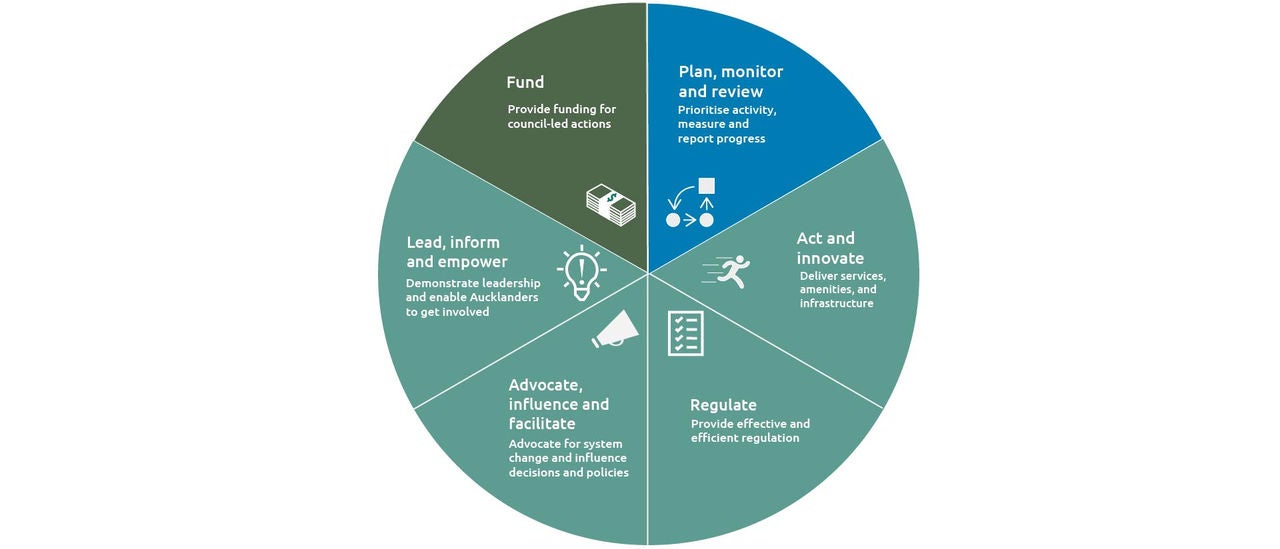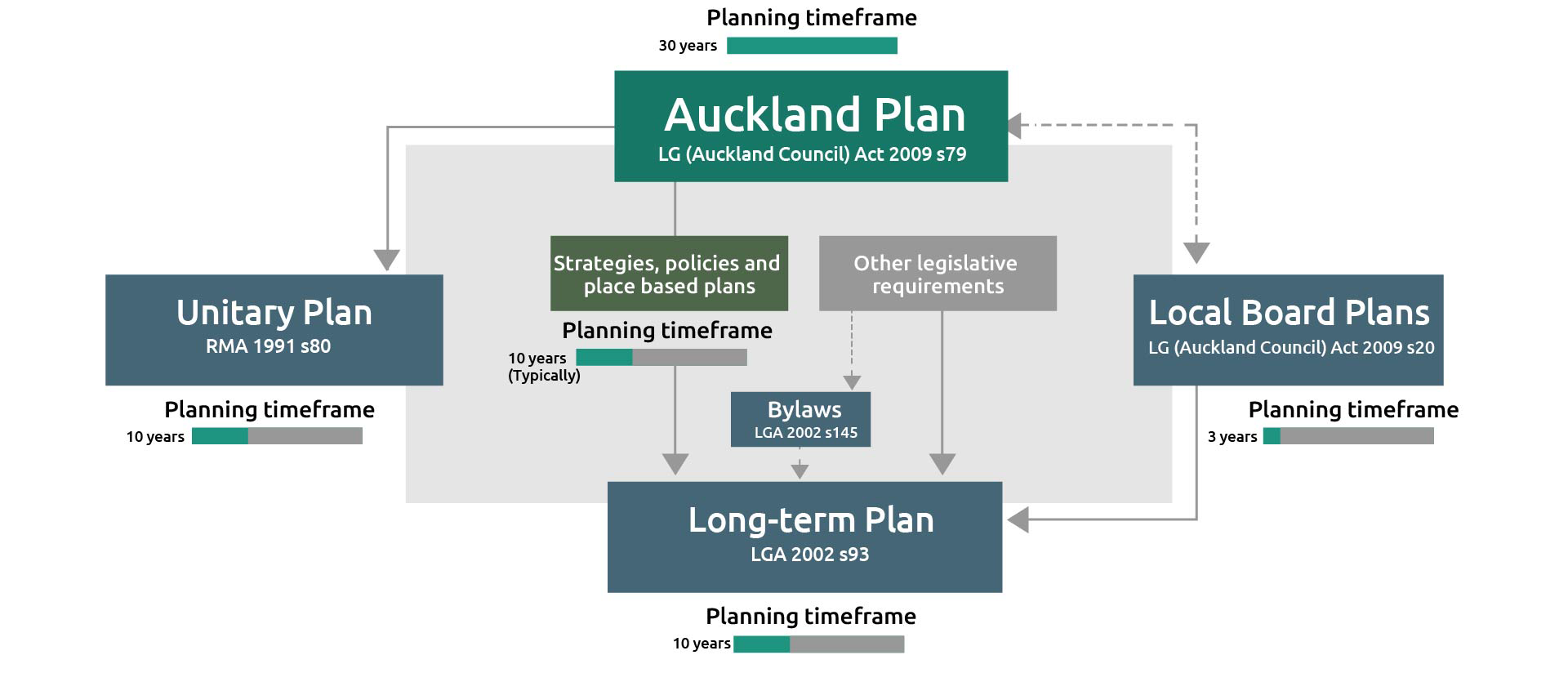The Auckland Plan 2050 sets out a long-term vision for Auckland to thrive and succeed over the next 30 years.
Making this happen will need the investment and action of:
- central and local government
- mana whenua Hapū and iwi with ancestral relationships to certain areas in Tāmaki Makaurau where they exercise customary authority.
- the private sector
- institutions and non-government organisations
- Auckland's communities.
We must work together and innovate, try new approaches, experiment and do things differently to bring about transformational change.
Working together to implement the Auckland Plan 2050
Auckland Council has developed the Auckland Plan 2050 with, and on behalf of, all Aucklanders.
Auckland now has a shared responsibility for implementing it.
Who needs to be involved
To an extent, all Aucklanders will play a role in shaping and delivering a better future for Auckland.
Several key groups and organisations play critical roles in achieving the outcomes and directions of the plan, through their knowledge, investment and actions:
- mana whenua have an enduring role as kaitiaki Trustee, custodian, guardian. of Tāmaki Makaurau The Māori name for Auckland. Translates to Tāmaki desired by many.
- advocacy groups influence and shape strategic choices and decision-making
- Auckland's businesses not only deliver the goods and services Auckland requires, but they create opportunities for social, economic and environmental change
- Auckland's many non-government and not-for-profit organisations play a key role in delivering social, economic and environmental outcomes
- local and community organisations deliver on-the-ground initiatives tailored to meet their community's needs
- infrastructure The structures, systems and facilities that support daily life such as water supply, roads and communications, including social infrastructure. providers must deliver expected services while contributing to strategic priorities such as supporting growth, reducing emissions and enhancing the environment. This is particularly important as infrastructure has a long-term impact on how we live
- central government sets policy and legislation, provides funding and resources, and delivers essential services that impact on Auckland
- Auckland Council contributes to Auckland's future through its planning, funding, regulatory, advocacy and facilitation functions.
How we can all work together effectively
Broadly speaking, successful implementation depends on:
- good relationships among partners and stakeholders
- strong alignment in planning and investment
- effective coordination and agreement
- taking up opportunities to innovate and do things differently.
More specifically, we need to ensure that:
- shared investment programmes are developed and underpinned by robust information, analysis and monitoring of Auckland's growth and change
- initiatives, strategies, or programmes of work deliver on multiple outcomes wherever possible, to get the best value for money from collective investments
- previous successes, investment and efforts are not wasted and that we work together to leverage and build on what we can to avoid duplicating effort and wasting resources.
How Auckland Council contributes to the Auckland Plan 2050
Auckland Council is committed to working effectively to help deliver the long-term directions outlined in the Auckland Plan 2050.
There are many ways it does this, some of which are set out below.


